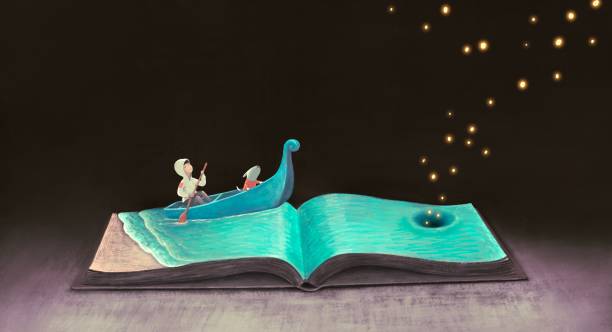Some people only occasionally need to read, whereas others take reading very seriously. True bookworms frequently find themselves unable to put a book down and wind up staying up all night reading it.
The mornings after a night of reading are not as enjoyable, and even though reading is a very healthy activity in general, many of us wish we could combine the two by discovering a way to read while we sleep. We all know that’s not possible, but the realm of dreams is a mysterious enough place to allow some of us to wonder “Can you read in dreams”.
Table of Contents
What Happens When We Dream?
Before going into more details and finding the answer to the question “can you read in your dreams”, let’s have a quick look at what dreaming is and what happens to our minds and bodies when we enter this mysterious realm that keeps baffling scientists for centuries.
To some extent, everyone is aware of what dreams are: the pictures and tales that our brains conjure up while we sleep. Why we dream and what exactly happens in our brains when we do is still relatively up to debate in the medical community, but here are some of the most reliable, science-backed claims:
• Dreams are a process through which our brain consolidates our memories
• They could have a role in preparing us for future threats
• They could be a mental process through which cognitive functions are being improved
Even though we are unconscious when we dream, our minds enter a different reality where almost anything is possible.
Can You Read in Dreams?
Let’s investigate the idea of reading in dreams now that we at least have a basic understanding of dreams. The issue at hand concerns whether we are actually capable of reading made-up text during dreams, be it books, signs, or any other type of text that our brains may generate in the context of the images and stories we experience while dreaming.
And a good one at that. In real life, we are constantly surrounded by writing; it is everywhere. Whether it’s the writing on a cereal box, a license plate, or this article you’re reading, our minds are constantly exposed to writing, and even when we’re not aware of it, our brains decipher it by reading all day long.
Our brains use dreaming to reimagine information from the outside world in various contexts. Despite the fact that it occasionally seems like we do, it is generally accepted that you cannot dream of something you haven’t at least partially experienced. You can’t dream up a new face, and even if you do, the new face you see is just a mashup of features from other faces you’ve seen in reality.
Given that reading is so ingrained in our everyday reality, one can only conclude, based on this theory, that reading may be a component of our dreams.
The situation is different when it comes to reading, though. It has been discovered that it is actually impossible to read in dreams. Even though you may “see” a text in a dream, it’s unlikely for it to actually be written in a language you know or even to exist at all. You can’t read in dreams, which is unfortunate because the things we believe we read in our dreams are simply our own thoughts projected in our subconsciousness.

Why Can’t You Read in Dreams?
Reading, writing, and even speaking are extremely rare in dreams because the entire language area of the brain is less active while we sleep.
Although Wayne was correct that the language-processing areas of the brain are primarily located in the left hemisphere, this isn’t a set rule. In some people, the right side of the brain is even more dominant than the left when it comes to language processing. Additionally, the optic nerve, which interprets the words you see, as well as the sensory cortex, which interprets touch, are both involved in reading, specifically.
Nevertheless, the many brain regions involved in interpreting language are located in the back and middle of the brain and are typically much less active while we are sleeping.
How to Make the Best of Your Reading While Awake?
The only option left for those of us who can’t read in our dreams is to maximize our awake reading time. And if you take reading seriously, you should be aware that using a reading app will allow you to accomplish much more.
Reading apps are teeny-tiny wizards that you can download to your phone or tablet, and they can be of various assistance to you, including the ability to track your reading time, provide statistics about your reading preferences, and let you create schedules, goals, and reminders.
Readers of all skill levels were especially considered when designing Basmo. The app is feature-rich, user-friendly, and works with both iOS and Android smartphones and tablets.
Conclusion: A Myth
Sadly, reading in dreams is largely a myth. Scientists have been able to establish with some degree of certainty that reading and dreaming are quite literally incompatible, with only a few exceptions.
But that doesn’t mean we shouldn’t try to maximize our time awake and read as much as we can. It would be a shame to pass up the benefits that apps like Basmo bring to the table given how much they can improve our reading habits.
